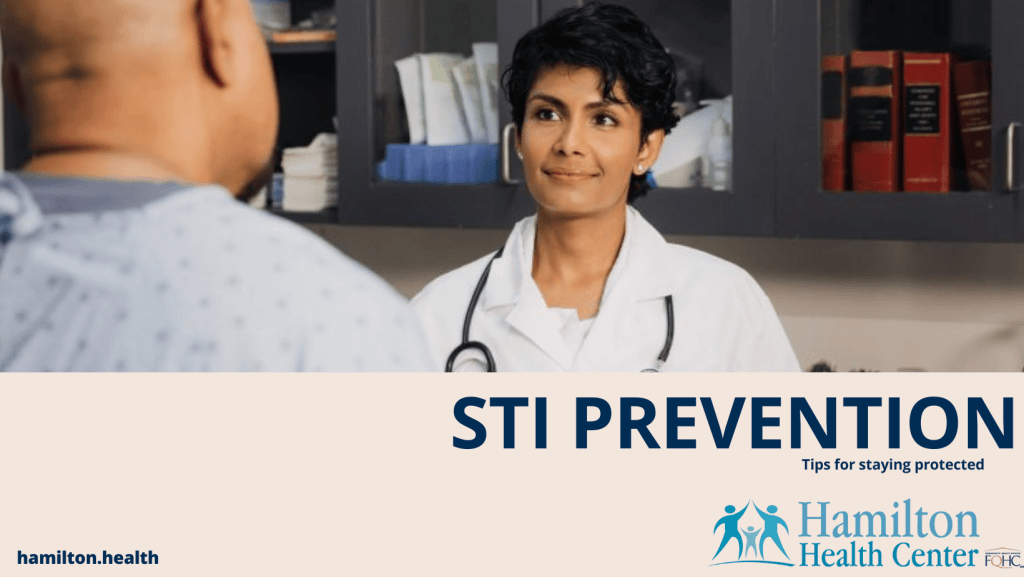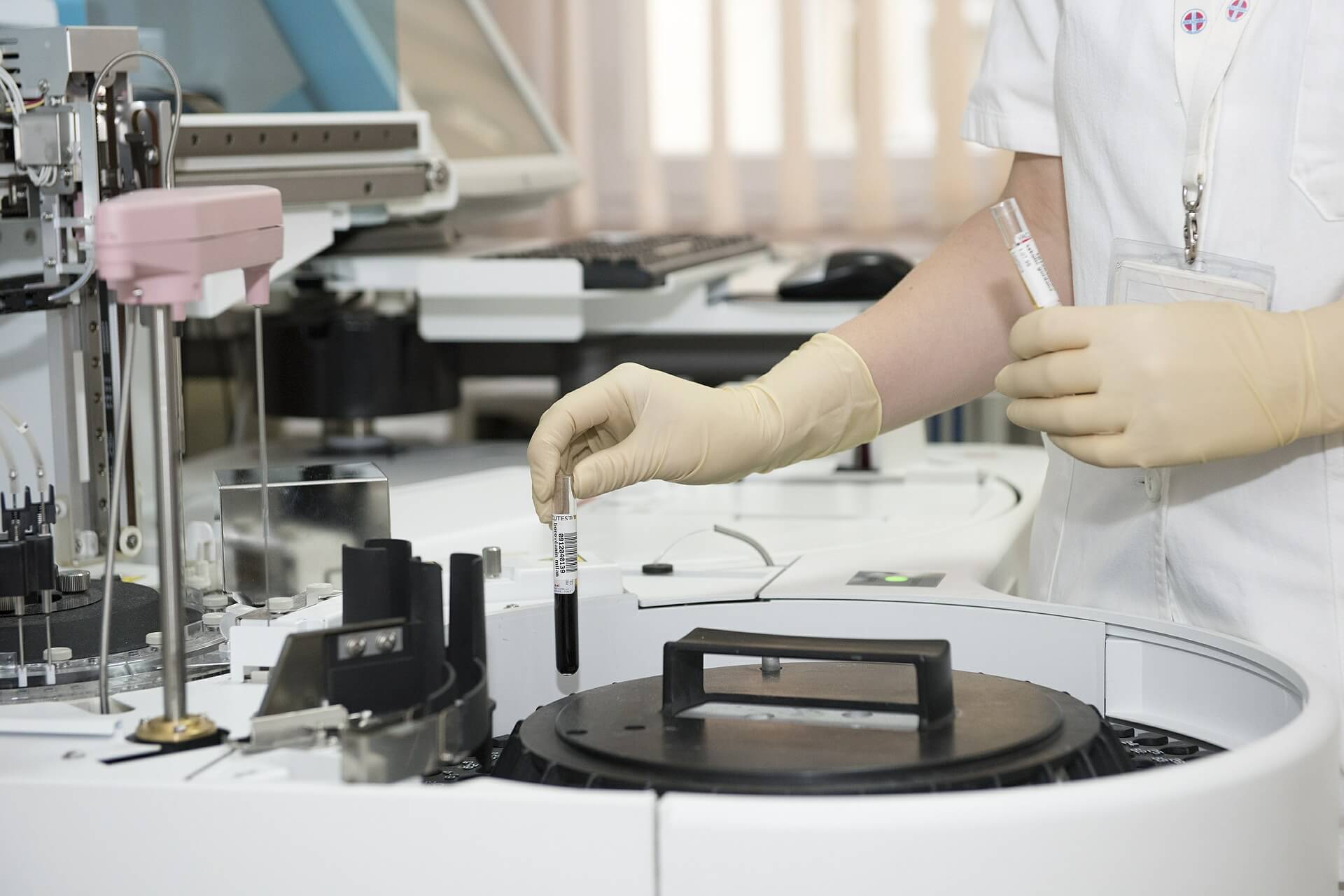Importance of HIV Testing
Human immunodeficiency virus (HIV) is a virus that attacks the immune system, the body’s natural defense against disease. If left untreated, HIV can weaken the immune system so much that it can no longer fight infection. This late stage of the virus, known as AIDS, can be deadly.
HIV is a serious condition that can affect people of all ages, genders and sexual orientations. Though around 40,000 people are diagnosed with HIV in the United States every year, as many as one in seven people living with HIV don’t know they have it.
Here’s the good news: detecting HIV and getting treatment is easier today than ever before. People living with the virus can have long, healthy and happy lives. Let’s take a look at the importance of HIV testing and what benefits it can provide.
Why Is Getting Tested for HIV Important?
Taking an HIV test is the only way to know if you have the virus. Because symptoms of AIDS can take years to develop, it’s essential to get tested even if you feel fine. Knowing your HIV status — whether you test positive or negative for the disease — is a vital step in getting treatment and preventing the disease from spreading.
HIV spreads from person to person through bodily fluids like blood and semen. This means that some of the most common ways people contract HIV are through unprotected sex and sharing needles during drug use. If you’ve engaged in these behaviors with someone whose HIV status is unknown, it’s important to get tested. Once you know your status, you can get treatment and take steps to avoid spreading HIV to others.
What Are the Benefits of HIV Testing?
Knowing your HIV status is a great way to protect your health and the health of the people you care about. There are many benefits of getting tested for HIV, whether your results are negative or positive:
- The test is fast and easy: During an HIV test, doctors take a blood or saliva sample to analyze. You’ll know whether you have the virus in around 20 minutes. An HIV test is almost always free.
- You can live a healthier life: If your test results show you have HIV, you can get the treatment you need to stay healthy. Today, antiretroviral drugs make it possible for people with HIV to live long, normal lives.
- You can protect your partners: When you know your HIV status, you can take steps to protect your current and future sexual partners and encourage previous partners to get tested, as well.
- It can give you peace of mind: If you think you might have HIV, you might feel nervous about getting tested. It’s normal to feel worried about your status, but it’s always better to take action than to ignore your concern. Getting an HIV test can give you peace of mind.
Ready to Get Tested for HIV?
There are many advantages of HIV testing for those at risk. If you’re ready to know your HIV status, call or contact Hamilton Health Center to make an appointment. We offer free, confidential HIV testing Monday through Friday between 8:30 a.m. and 4:30 p.m. We’re proud to offer HIV testing and support to all Central Pennsylvania residents, regardless of age, income and insurance status as well as STD testing for all other diseases.
More STD & HIV Resources
STD Testing Facts
STD Testing & Why You Should Get Tested
 Sexually transmitted diseases (STDs) are a taboo topic in our society. However, they can cause serious health problems when you don’t treat them. STD testing helps you stay healthy, so keep reading to learn the facts about STD testing and to find out where you can get tested.
Sexually transmitted diseases (STDs) are a taboo topic in our society. However, they can cause serious health problems when you don’t treat them. STD testing helps you stay healthy, so keep reading to learn the facts about STD testing and to find out where you can get tested.
Why Is STD Testing Important?
The CDC estimates that about 19 million new cases of STDs happen every year. Since many STDs don’t have obvious symptoms, getting tested is the best way to find out if you have one. Knowing if you have an STD lets you treat your disease and protect yourself and your sexual partners. While STDs seem scary, you can get a diagnosis and treatment for many of them easily. You just need to take the first step.
Am I at Risk for an STD?
Everyone who has sex has a risk of getting an STD. Some people who don’t have sex can also get STDs, including bacterial vaginosis (BV) and other infections. You have an even higher risk than usual if you inject drugs, have multiple sex partners, don’t use protection or practice anal sex.
How Do They Do an STD Test?
The method used to test a patient for an STD depends on the type of STD that the clinic wants to diagnose. Your provider might get a swab of your genitals, check your blood or get a sample of a fluid such as urine or discharge. You can ask the provider about the method they will use before you get the test. Let them know what you feel comfortable with and try to find a solution together.
Will I Be Judged for Getting an STD Test?
Medical professionals receive training that teaches them not to judge patients who have STDs. Unfortunately, not all doctors follow this advice. However, many providers who openly advertise their STD testing services do not judge patients for getting tested. If you worry about judgment, try to find a provider that clearly says they don’t judge you when they describe their services.
No matter what, treating your STD is much more important than not getting judged. Remember that having an STD is not a moral failing — it is just a medical condition like having a broken arm.
How Do I Talk to My Partner About STD Testing?
If you have a sexual partner, getting tested together will help you prevent spreading an infection back and forth. However, you might feel nervous about talking to them about it. Let them know you’re asking because you want to stay healthy, not because you think they’re “dirty.” Don’t let your partner pressure you to have sex with them if they don’t want to talk about sexual health with you.
Where Do I Get Tested for STDs Near Me?
Patients in the Harrisburg area can get STD and HIV testing right here at Hamilton Health Center. We serve everyone, regardless of HIV status, sexual orientation, income or background. Most importantly, we will never judge you for getting tested. Please call us at (717) 232-9971 to schedule an appointment today.
View More STD Resources
STI Prevention Tips
Advice For Avoiding STIs

The prevention and control of sexually transmitted diseases is critical for sexually active people. The best way to prevent a sexually transmitted infection (STI) is to abstain from all sexual activity— but that’s not practical for most people. So, we will give you proven STI and STD prevention tips that’ll help you enjoy an active sex life without the health risks.
Communicate Openly With Your Partner
Many young adults avoid talking about sex at the beginning of a relationship, but it’s vital to talk about it if you want to prevent STIs.
Speak with your partner openly about sexual health and STIs before you engage in sexual activities. Practicing open communication about sex enhances trust and mutual respect. Be sure to talk to your doctor about your sexual practices.
Use Condoms
Use condoms correctly each time you have sex — and particularly casual sex. Condoms may not have a 100% guarantee against infection or pregnancy, but they’re quite effective when used correctly. Remember to:
- Make sure the condom hasn’t expired
- Use only water-based lubricants to avoid damaging the condom
- Always leave enough room at the tip of the condom
- Don’t reuse a condom or remove it and wear it again
Abstain From Sex When You Think a Partner Has an STI
Always avoid sexual contact with anyone who has a discharge, rash, genital sores or any symptoms of an STI. It’s best practice to:
- Let you or your partner see a doctor and get treated before you resume sexual activity
- Follow all the instructions of your physician
- Always use a condom if you’re having sex with a new partner
- Let your doctor give you or your partner an all-clear report before you start having sex again
Avoid Using Recreational Drugs and Alcohol
Getting stoned or drunk can increase your risk of contracting STIs. When you’re intoxicated, you won’t be able to exercise the judgment required to practice safe sex.
Abstaining from recreational drug use can cut your risk of being coerced to have unsafe sex. The use of recreational drugs in public places like nightclubs can easily get you to act against the good decisions you made earlier on. If you must use recreational drugs like marijuana, you should do so at home where the cerebral euphoria can wear off without making any regrettable decisions.
Practice Mutual Monogamy
Do your best to stick with just one sexual partner. The only way to have unprotected sex and remain safe from infections like syphilis, gonorrhea, HIV and chlamydia is for you and your partner to abstain from having sex with other partners. This is called mutual monogamy.
Staying faithful to just one partner will limit your exposure to STIs. The risk of STIs will be very minimal if one or both of you has not had sexual contact with another person.
When one person has had sexual contact with someone else, both of you should get tested for STIs before any sexual contact. Let your healthcare provider know how long ago you or your partner had sexual contact with another person.
Get an STD Prevention Education With Hamilton Health
Hamilton Health provides STD prevention education for a wide variety of patient groups including low-income earners. We’re committed to helping you enjoy good health while you’re sexually active.
Call us at (717) 232-9971 to book an appointment with one of our caring and compassionate healthcare providers today.
View More STD Resources
Learn How to Prevent HIV/AIDS
HIV and African Americans
Recent statistics from the CDC on HIV prevention show that African Americans have a greater proportion of new HIV/AIDS diagnoses than other racial/ethnic groups. In 2015, African Americans had 45 percent of HIV diagnoses.
The report further revealed that:
- In the U.S., 17,670 of those diagnosed with HIV were African Americans.

- Over half (58 percent) of new African American HIV cases were bisexual or gay men.
- 38 percent of African American men who had sex with men (MSM) were between the ages of 13 and 24 years.
- 8,702 (48 percent) of people diagnosed with AIDS were African Americans.
- The total number of African American women diagnosed with HIV in 2015 fell by 42 percent.
- In 2015, the HIV diagnoses among African American women was over 4,500.
- The number of HIV cases among African American MSM increased by 22 percent.
In different ways, the African American population has had a greater increase in HIV cases than all other major ethnic groups in the U.S. This means there are more deaths caused by HIV/AIDS among this group. Unfortunately, many black children are becoming fatherless and many women are becoming widows. The future of the children of such men will be adversely affected by the rise in HIV cases because their fathers and mothers will not be able to provide adequately for their needs due to sickness or untimely death. As we observe National Black HIV/AIDS Awareness Day, we’d like to share some suggestions for a healthy and safe sex life.
Ways to Prevent HIV/AIDS
There’s an urgent need to focus on how to prevent HIV/AIDS among the African American community. As an African American, here are two things you can do to ensure you don’t get infected or spread the virus.
Get Tested
Make it a point of duty to go for an HIV test at least twice a year. You don’t need to be afraid of asking your doctor, “Do I have AIDS?” There are no stigmas attached to this and early detection can help you begin taking appropriate medication to prevent untimely death.
Use Condoms
To prevent HIV infection, you need to practice safe sex. Discuss with your partner and assess their awareness. Ask questions like:
- “What is HIV?”
- “Do you know your status?”
- “Do you mind using a condom?”
Use a condom each time you have sex. Using condoms correctly can help you prevent the transmission of HIV and STDs through blood, seminal, vaginal or rectal fluids.
Sterilize Injection Equipment and Don’t Share With Others
Never share injection instruments such as needles or syringes with anyone and make sure you only receive sterilized injections. After sexual relations, sharing drug syringes and needles with another person who has HIV is the most common way African Americans contract HIV. Sharing needles allows HIV to spread through blood contact.
Ways to Treat HIV/AIDS
- Take Medicine: HIV medication may be used to diminish the risk of HIV infection shortly after exposure to the virus. This type of medication is known as post-exposure prophylaxis (PEP). PEP works after a person has had sex without using a condom with an infected partner. To be effective, it must be taken within 72 hours after exposure. This medication needs to be taken for about four weeks to be fully effective.
Similarly, women infected with HIV can take medicine to prevent transmitting the disease to their unborn child. The newborn child will also receive HIV medication for about four to six weeks after birth. This medicine will reduce the chances of infecting the baby with the virus in utero. - Use Condoms: To prevent your partner from getting infected with HIV, you must use a condom correctly each time you have sex. Using condoms the prescribed way will prevent the transfer of HIV infection and other sexually transmitted diseases each time you have vaginal, anal or oral sex. It will prevent the mixing of vaginal fluids, rectal fluids, pre-seminal fluids, semen or blood, which allow the spread of HIV.
Ask Us for Help!
At Hamilton Healthcare, we offer HIV testing and counseling. We’re a Federal Qualified Health Center and we don’t discriminate against anyone based on sexual orientation. So, we encourage you to be open about your needs and ask all the questions you wish. To get more information about HIV/AIDS prevention and treatment, give us a call at (717) 232-9971 today.




